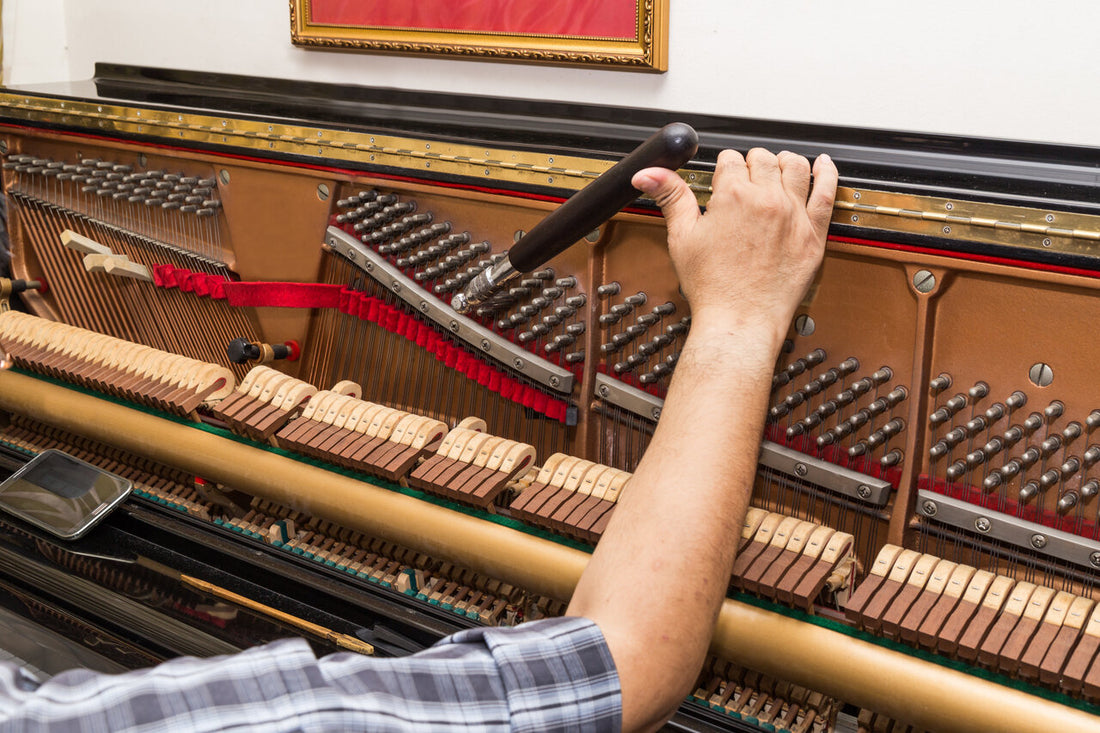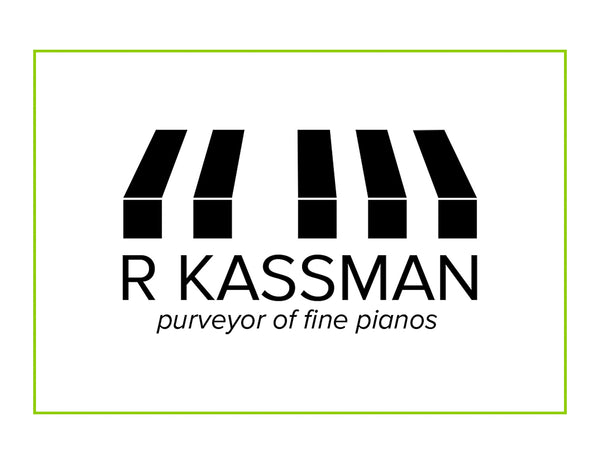
Ensuring Longevity through Effective Maintenance
If you're the proud owner of a luxurious European piano, such as a Steingraeber, Grotrian, or Estonia, you'll know that these aren't just instruments, but works of art. With their rich tones and stunning craftsmanship, these pianos are a joy to play and a delight to behold. However, to keep these beauties in top-notch condition, they require a certain level of care and attention.
In this guide, we'll navigate the world of European piano maintenance together, providing you with the knowledge and tools needed to keep your piano looking and sounding its best. From climate considerations to cleaning techniques, from voicing to varnishing, we'll explore it all. This is not just about preserving the life of your piano, but also about enhancing your playing experience and ensuring the longevity of your investment.
Maximizing Your European Piano’s Lifespan: Maintenance Tips and Tricks
1. The Mechanics of Maintenance: Understanding Your European Piano's Inner Workings
Familiarizing oneself with the fundamental components of a European piano provides valuable insight into the internal workings that contribute to its sound and function.
- The Soundboard and Strings: The soundboard and strings are the heart and soul of your piano's voice. Ensuring their integrity is vital to preserving the instrument's sound quality.
- The Action and Hammers: The action is the intricate system of levers and springs that translates the touch of the keys into musical expression. Regular inspection and adjustment of components such as hammers are necessary to maintain pristine performance.
2. Climate Control: Preserving Your Piano's Longevity Through Ideal Conditions
Controlling the humidity and temperature surrounding your piano plays a crucial role in its longevity and maintaining ideal conditions safeguards your instrument's impeccable performance.
- Humidity Management: Excess humidity can cause wood components to swell, potentially leading to warping, sticking keys, or impaired action. Conversely, low humidity may result in shrinkage and cracks in your piano's structure. Utilize tools such as humidifiers, dehumidifiers, and hygrometers to maintain a stable environment, ideally between 40% and 50% relative humidity.
- Temperature Regulation: Extreme temperature fluctuations can adversely affect your piano's tuning stability, soundboard, and other components. Position your piano away from radiators, heating vents, and direct sunlight to mitigate potential temperature-related damage.
3. Tuning and Regulation: Ensuring Optimal Sound Quality and Mechanical Performance
Regular tuning and regulation appointments are essential to maintain brilliant sound quality and protect your piano's intricate mechanical components.
- Piano Tuning: European pianos, like all pianos, naturally go out of tune over time as strings stretch, atmospheric changes affect the piano's structure, and regular use impacts the action. As a rule of thumb, pianos should be tuned at least twice a year, or as advised by your professional piano technician.
- Regulation for Steingraeber, Grotrian, and Estonia Pianos: Regulation refers to the adjustment of the piano's action to ensure the instrument remains responsive and precise. Consult your piano technician for specific regulation guidelines tailored to your Steingraeber, Grotrian, or Estonia piano.
4. Cleaning and Polishing: Best Practices for Protecting Your Piano's Appearance and Function
Keeping your European piano clean and polished is essential to protecting its exquisite finishes and preventing dust and dirt from damaging delicate internal mechanisms.
- Cleaning the Keys and Exterior: To clean your piano keys, use a soft cloth lightly dampened with a mixture of water and mild soap. Thoroughly wring out the cloth to avoid excess moisture and gently wipe the keys, taking care not to allow any liquid to seep between them. Clean the piano's exterior with a dry, soft cloth, avoiding abrasive materials or products that could damage the finish.
- Polishing the Finish: For glossy finishes, use a specialized piano polish and a soft, lint-free cloth to maintain the piano's shine. For satin or matte finishes, stick to a gentle, dry cloth to avoid damaging the surface.
- Internal Components: Leave cleaning the interior components of your piano to a professional. Attempting to clean inside a piano without proper knowledge or experience can lead to costly, irreparable damage.
5. Professional Expertise: Entrusting Your Piano to Skilled Technicians
Seeking professional advice and services for European piano maintenance is invaluable for maintaining the instrument's health and performance.
- Choosing the Right Technician: Select a qualified piano technician with experience working on European pianos, such as Steingraeber, Grotrian, or Estonia, to ensure they are well-versed in the unique care requirements of these instruments.
- Knowing When to Seek Help: Listen for symptoms of potential issues, such as buzzing notes, sticky keys, or loss of responsiveness, and do not hesitate to contact your piano technician for assistance.
Give Your European Piano the Care It Deserves
While it may seem like a lot to keep in mind, don't be overwhelmed. The love and effort that you put into caring for your piano will certainly reflect in its rich, melodious sound. Over time, these maintenance tasks will become second nature, and the rewards, in terms of your piano's longevity and performance, are definitely worth it. So, here's to many more years of beautiful music from your cherished European piano!
Begin your European piano journey by visiting R. Kassman Piano, where our expert team can assist with selecting your new instrument and providing maintenance tips tailored specifically to your Steingraeber, Grotrian, or Estonia piano. So, check out our music store in Berkeley, CA!
